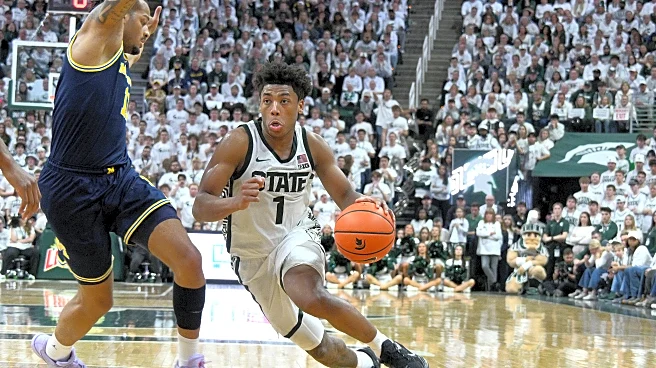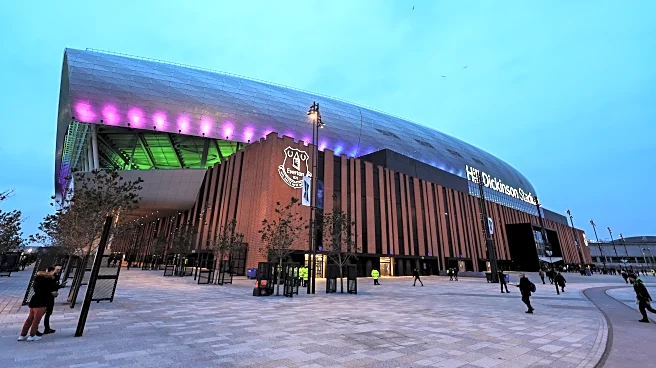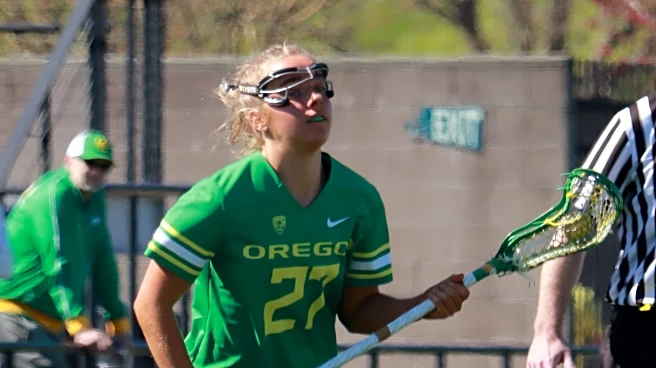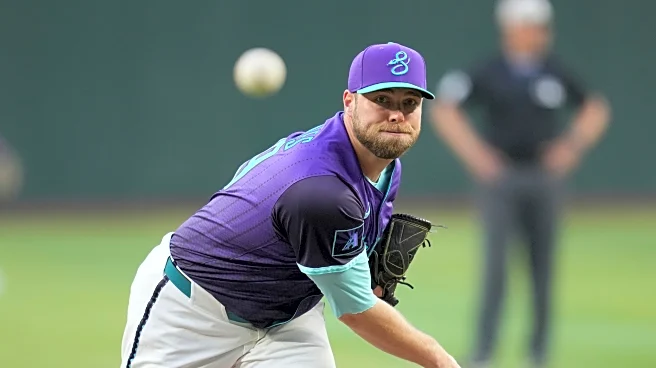What's Happening?
The Nashville Predators are focusing on developing their top prospects to ensure future success in the NHL. Tanner Molendyk, a defenseman selected with the No. 24 pick in the 2023 NHL Draft, has shown significant promise with 47 points in 49 games last season, contributing to Medicine Hat's WHL championship. David Edstrom, acquired from the San Jose Sharks, is a promising center who played in Sweden's top professional league and is expected to be a key player for the Predators. Cameron Reid, another defenseman, was selected with the No. 21 pick in the 2025 NHL Draft and has demonstrated strong offensive capabilities in the OHL. These players are expected to make their NHL debuts in the coming seasons, with Molendyk potentially joining this season.
Why It's Important?
The development of these prospects is crucial for the Nashville Predators as they aim to build a competitive team for the future. With the NHL becoming increasingly competitive, having skilled young players ready to step into key roles is essential for long-term success. Molendyk, Edstrom, and Reid represent the next generation of talent that could help the Predators maintain their competitive edge. Their progress and eventual integration into the NHL lineup could significantly impact the team's performance and standings in the league.
What's Next?
As these prospects continue to develop, the Predators will monitor their progress closely. Molendyk is expected to make his NHL debut this season, while Edstrom and Reid are projected to join in the next few years. The team will focus on providing them with the necessary training and experience to ensure a smooth transition to professional play. The Predators' management will also evaluate their roster needs and make strategic decisions to integrate these young talents effectively.
Beyond the Headlines
The emphasis on developing young prospects highlights the Predators' commitment to building a sustainable and successful team. This approach not only strengthens the team's future but also reflects broader trends in the NHL, where teams increasingly rely on homegrown talent. The development of these players could also influence the Predators' strategies in trades and drafts, as they balance immediate needs with long-term goals.












